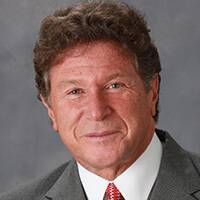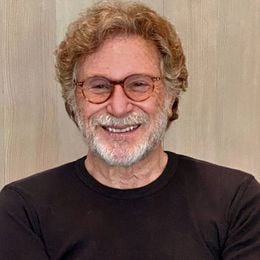5 Course Corrections Needed for a Better Future of Aging
Rethinking and reform would aid older Americans and maximize their capabilities
(This article is the seventh in a weekly Next Avenue series, The Future of Aging: Realizing the Potential of Longevity published by the Milken Institute Center for the Future of Aging. The first article in the series was A New Model for the Future of Aging. The second article was Personalized Aging: Extending Lifespans and Healthspans. The third article was Boomers: Less Tied to Friends and Family Than Others Are. The fourth article was What It Will Take for the U.S. to Profit From the Longevity Dividend. The fifth article was Work, Retirement and Financial Security in the 21st Century. The sixth article was Technology, Aging and the Coming Fifth Wave.)
Longevity is truly humanity’s new frontier. In fact, two-thirds of the people who have ever lived past 65 in the history of the world are alive today. As the baby boomers turn 65 at the rate of 10,000 a day, America is becoming a “gerontocracy.” Are we prepared?
No.
Just as society’s institutions were grossly unprepared for our baby boom, we have done far too little to prepare for the coming age wave.
Based on 40 years of research, dialogue, analysis and activism, I have come to believe that there are five essential — and achievable — course corrections that are needed if we are to optimize our newfound longevity:
1. Create a Worthwhile Purpose for Maturity
Although medical science can increasingly prolong life, political, religious and community leaders have yet to create a compelling vision for those additional years.

Currently, 65 million-plus retirees spend an average of 49 hours a week watching television. Let’s reorient the tasks and timing of today’s youth-centric volunteerism to take better advantage of the talents and skills cultivated over a lifetime.
Why not mobilize an elder corps so tens of millions of retirees can share their values, knowledge and skills with young people in need? We could unleash our greatest growing natural resources that are hiding in plain sight: longevity and wisdom.
2. Align Our Health Spans With Our Lifespans
Unless we intervene, the nightmarish afflictions of later life will become tomorrow’s pandemics.
We must turbocharge scientific breakthroughs to control, delay or, even better, eliminate the diseases of aging, such as heart disease, cancer and diabetes — with priority given to Alzheimer’s, which is 100 percent fatal, 100 percent incurable and affects one in two people over 85.
We must also insist that health-care professionals are properly trained (note: currently, they’re not) to care for our aging population by requiring standards of geriatric-related competence. And we need a more humane, respectful approach to late-life palliative care and the dying process.
3. Unleash Lifelong Productivity
It’s time to replace the “linear” life paradigm with a new “cyclic” one that views maturity as a time for personal reinvention, late blooming and/or new beginnings.
And we should challenge our educational systems (with particular attention to community colleges, workplaces and the Internet) to distribute learning across the lifecourse and help adults remain relevant by repeatedly rebooting their skills and intellectual abilities.
Employers would be wise to provide more flex-work, job-sharing, phased retirement and sabbaticals so that longer-lived workers have more balance in heir lives.
4. Retire Retirement, 65 and Ageism
In the 1880s, German leader Otto von Bismarck chose 65 to be the standard retirement age — when life expectancy at birth was only 45! It’s now 79, and rising. If it continues to climb without adjustments in the eligibility for “old age” entitlements, the cost of programs like Social Security and Medicare could crush the younger generations that must support them.
Boomers must do the right thing and agree to affluence testing and the indexing of entitlements to their rising longevity.
While we’re at it, we should also liberate the media and the consumer marketplace from their ageist youth orientation to increase the comfort, security, well-being and involvement of older adults.
5. Avert an Era of Mass Elder Poverty
Approximately one-third of boomers have saved responsibly and will benefit from family inheritances. Another third will likely extend their work lives five to seven years to enjoy a satisfactory retirement. Yet financial inequality among tomorrow’s elders is worsening, and around 25 million boomers have virtually no savings, pensions or promise of inheritance.
We need a bold national education “intervention” that stimulates financial literacy at every stage of life. Government and employers could help us help ourselves by encouraging increased personal savings rates, possibly through mandated tax-advantaged programs.
Do we as a nation have the guts and wisdom to take these steps? I believe we do, and I surely hope we will make the course corrections necessary to usher in a healthy and purposeful future of aging.


